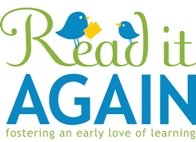Nurturing Grit in Preschoolers: It’s a Balancing Act for Parents
In an attempt to raise strong, resilient, and capable children, the concept of grit has gained considerable attention in recent years. Grit, defined as passion and perseverance for long-term goals, has been linked to academic success, emotional well-being, and overall life satisfaction. As parents of preschool-aged children, you may be wondering how to instill this valuable trait in your little ones. However, like any parenting strategy, teaching grit comes with both positive and negative aspects that require thoughtful consideration.
The Positives of Grit:
Resilience Building:
Teaching grit involves exposing children to challenges and encouraging them to persist despite setbacks. This resilience-building process helps children develop coping mechanisms and adaptability, preparing them for the inevitable obstacles life may throw their way.
Long-Term Goal Setting:
Gritty individuals are known for setting and pursuing long-term goals. Teaching preschoolers to establish objectives and work towards them fosters a sense of purpose and direction, providing a foundation for future achievements.
Work Ethic Development:
Grit is closely tied to a strong work ethic. By instilling the value of hard work and dedication from a young age, parents can set the stage for their children to approach tasks with diligence and commitment throughout their lives.
Improved Academic Performance:
Research suggests that grit is positively correlated with academic success. Children who develop perseverance and passion for learning are likely to overcome academic challenges more effectively, laying the groundwork for a successful educational journey.
The Negatives of Grit:
Risk of Burnout:
While encouraging perseverance is important, pushing children too hard or expecting them to persist without considering their developmental readiness can lead to burnout. It's crucial to strike a balance between fostering grit and recognizing when a child needs a break.
Overemphasis on Individual Achievement:
A focus on grit may inadvertently place excessive importance on individual achievement. It's essential to teach children the value of collaboration, teamwork, and seeking help when needed, rather than fostering an environment solely centered around individual success.
Potential for Stress and Anxiety:
Excessive pressure to persevere in the face of challenges may contribute to stress and anxiety in young children. Parents should be attuned to their child's emotional well-being and adjust expectations accordingly.
Varied Developmental Readiness:
Every child develops at their own pace, and some may not be ready to grasp the concept of grit during the preschool years. Pushing a child to develop grit prematurely can lead to frustration and resistance.
Conclusion:
Teaching grit to preschoolers can be a rewarding and challenging endeavor for parents. By understanding the positive and negative aspects of this approach, parents can strike a balance that nurtures resilience while respecting their child's individual developmental needs. Ultimately, a holistic approach that considers the child's emotional well-being, fosters a love for learning, and encourages both individual effort and collaboration is key to raising well-rounded and gritty individuals.

